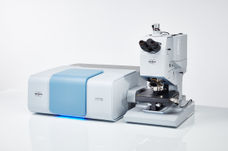AkzoNobel cooperates with Itaconix
Agreement on development of bio-based polymers
AkzoNobel has signed a framework joint development agreement with specialty chemicals company Itaconix to explore opportunities for the production of bio-based polymers.
With this agreement, AkzoNobel will pursue the development and commercialization of bio-based polymers. Itaconix will contribute a proprietary polymerization technology to turn itaconic acid - obtained from sugars through fermentation - into polymers.
"This innovation enables the production of polymers from renewable ingredients, which fits closely with our Planet Possible sustainability agenda of doing more with less," explained Peter Nieuwenhuizen, RD&I Director for AkzoNobel's Specialty Chemicals business. "These bio-based polymers offer unique properties in applications essential to our everyday lives, ranging from water quality to cleaning and hygiene."
Itaconix is a US subsidiary of Revolymer, which is also working with AkzoNobel on a marine coatings project. Kevin Matthews, CEO of Revolymer, said: "AkzoNobel has worldwide capabilities to utilize our itaconic acid polymers in many application areas. We believe this agreement is an important step for the further development of bio-based chemistry on a large scale."
Nieuwenhuizen added that the deal is the latest example of AkzoNobel's commitment to fostering innovation and approaching the topic in an open and collaborative way.
Organizations
Other news from the department business & finance
These products might interest you

Eclipse by Wyatt Technology
FFF-MALS system for separation and characterization of macromolecules and nanoparticles
The latest and most innovative FFF system designed for highest usability, robustness and data quality

HYPERION II by Bruker
FT-IR and IR laser imaging (QCL) microscope for research and development
Analyze macroscopic samples with microscopic resolution (5 µm) in seconds

Get the chemical industry in your inbox
By submitting this form you agree that LUMITOS AG will send you the newsletter(s) selected above by email. Your data will not be passed on to third parties. Your data will be stored and processed in accordance with our data protection regulations. LUMITOS may contact you by email for the purpose of advertising or market and opinion surveys. You can revoke your consent at any time without giving reasons to LUMITOS AG, Ernst-Augustin-Str. 2, 12489 Berlin, Germany or by e-mail at revoke@lumitos.com with effect for the future. In addition, each email contains a link to unsubscribe from the corresponding newsletter.
























































